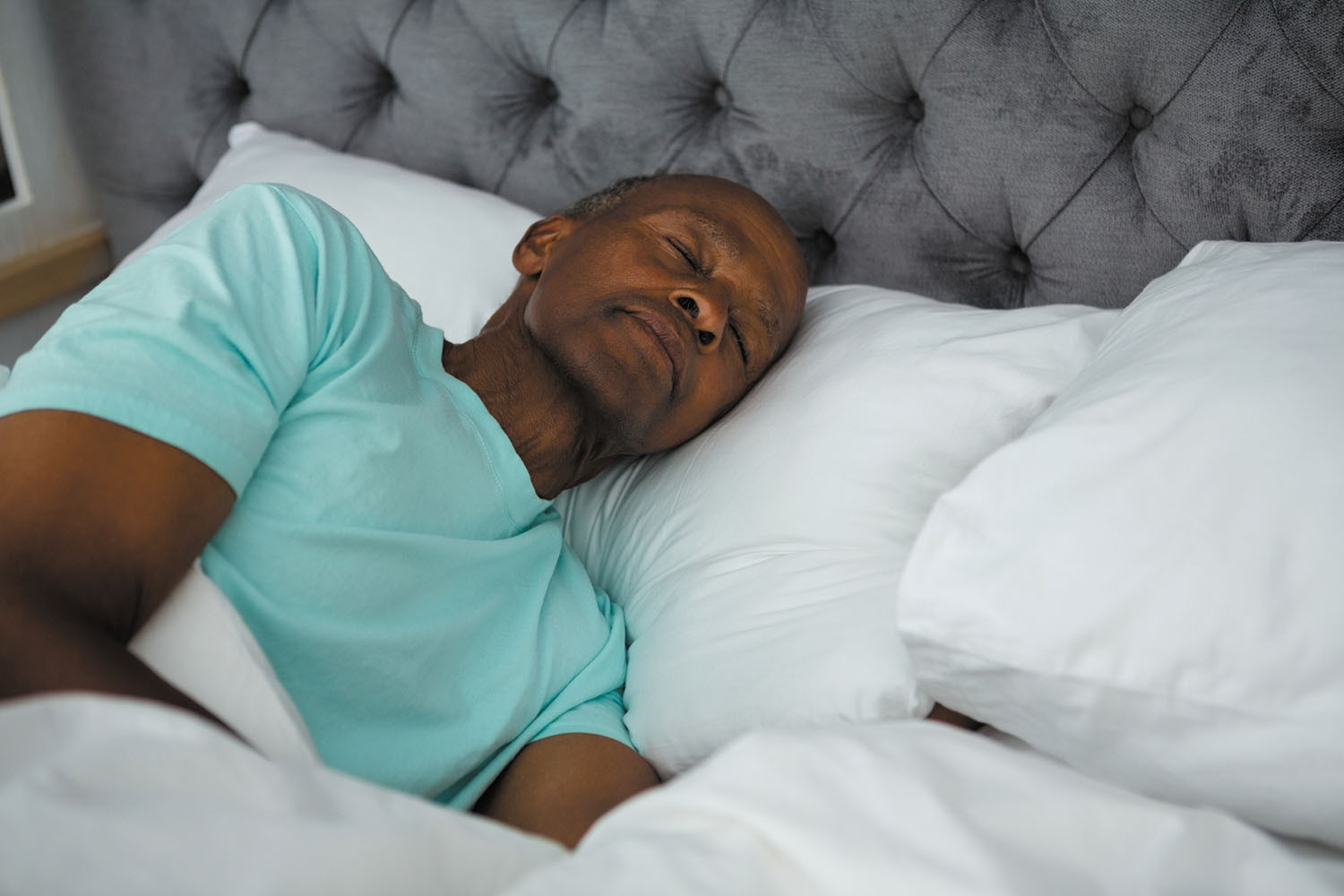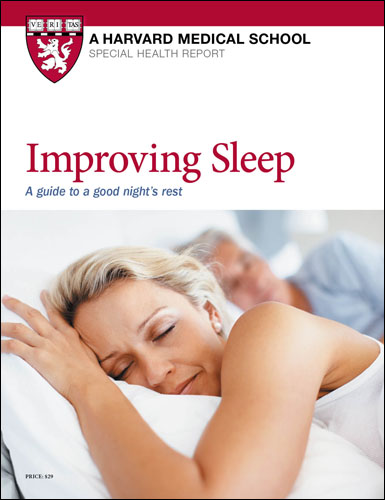Top 4 reasons why you're not sleeping through the night
Unhealthy habits and underlying conditions contribute to interrupted sleep.

The world looks sunny after a great night's rest. But it's a different story when sleep is frequently interrupted. A lack of Zs makes it harder to think and easier to become irritated and anxious. In the long term, inadequate sleep increases your risk for obesity, high blood pressure, heart disease, diabetes, and even premature death. That makes it important to figure out what's interrupting your sleep.
1. It could be your age
"We see more interrupted sleep in older adults, although you shouldn't automatically blame frequent waking on your age," says Dr. Suzanne Bertisch, an assistant professor of medicine at Harvard Medical School.
Sometimes older adults find they wake early in the morning, when they feel they should be sleeping. But that often reflects your schedule for sleeping and waking, not disrupted sleep.
"Your circadian rhythm, or sleep-wake cycle, may dramatically shift when you're older, causing you to get sleepy earlier. So, if 8 p.m. is the start of your 'biologic' night, then your natural wake time may be around 4 a.m.," Dr. Bertisch says.
2. It could be your lifestyle
One of the common causes of disrupted sleep is lifestyle, including any of the following habits:
- Drinking alcohol within four hours of bedtime. A nightcap may help you fall asleep, but it also can interrupt sleep later in the night, and can also cause more trips to the bathroom.
- Eating within a few hours of bedtime. Lying down with a full stomach can promote heartburn, which makes it harder to fall asleep and stay asleep.
- Napping too much. Long naps in the afternoon or later make it harder to stay asleep at night.
- Consuming too much caffeine.Caffeine (in coffee, tea, and sodas) blocks a brain chemical called adenosine that helps you sleep. Go light on caffeine-containing foods and drinks beyond the early afternoon.
Dr. Bertisch says changing these habits can help reduce disrupted sleep, sometimes quickly.
3. It could be your medication
Some medications can cause nighttime waking. Examples include
- some antidepressants
- beta blockers to treat high blood pressure
- cold remedies containing alcohol
- corticosteroids to treat inflammation or asthma
Dr. Bertisch recommends asking your doctor if your medication might be the culprit and if there's a different time of day to take it or another drug that won't interfere with your sleep.
4. It could be an underlying condition
Many chronic health problems can throw a monkey wrench into a sound sleep. These are some of the most common in older age:
- Anxiety or depression. Worries or a depressed mood may make it hard to fall asleep and stay asleep.
- Enlarged prostate gland (benign prostatic hyperplasia, or BPH). The urge to empty the bladder wakes men with BPH throughout the night.
- Chronic pain. It's hard to stay asleep when you're hurting. "And it's a two-way street. Sleep deprivation worsens next-day pain," Dr. Bertisch says.
- Neuropathy. Tingling, numbness, or pain in the hands and feet can cause frequent waking.
- Sleep apnea. Loud snoring and brief awakenings during the night may be signs you have sleep apnea, which causes brief pauses in breathing at night and leads to daytime sleepiness.
How to cope
There's no need to live with the burden of disrupted sleep. Change your lifestyle if you feel it's interfering with your sleep or talk to your doctor about ways to better treat or possibly investigate underlying conditions.
And practice good sleep hygiene:
- Wake up at the same time each day.
- Avoid electronic devices (which emit light and stimulate the brain) at least two hours before bed.
- Sleep in a quiet, dark, cool space.
- Get regular exercise (but not within an hour of bedtime).
If you are already practicing healthy sleep behaviors but still have trouble sleeping, consider cognitive behavioral therapy for insomnia (CBT-i). CBT-i is a proven way to treat insomnia through relaxation techniques, talk therapy, and adjustment of the amount of time you spend in bed. It works with your body's natural controllers of sleep to reset the brain to achieve healthier sleep.
The good news: you can boost sleep quality and regain that sunny morning feeling. "When you sleep better," says Dr. Bertisch, "you're more likely to see improvements in your day-to-day function, concentration, energy levels, and quality of life."
Image: © Wavebreakmedia/Getty Images
Disclaimer:
As a service to our readers, Harvard Health Publishing provides access to our library of archived content. Please note the date of last review or update on all articles.
No content on this site, regardless of date, should ever be used as a substitute for direct medical advice from your doctor or other qualified clinician.
















